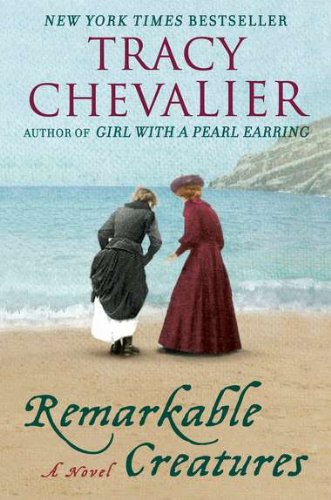 This book
started off a little slow, but picked up really quickly until I found myself
not being able to put it down. Debut author Kathleen Grissom really knows how
to write characters that you care about, root for, and feel for. Taking place
at the height of the slave era in the south, the story was a unique window into
both sides of plantation life, with the main character Lavinia often times
uncomfortably straddling the inter-dependent worlds of landowners and slaves. Though the story was filled with lots of
heartbreak and tense situations, the heartwarming relationships, especially between Lavinia and Mama
Mae, were uplifting.
This book
started off a little slow, but picked up really quickly until I found myself
not being able to put it down. Debut author Kathleen Grissom really knows how
to write characters that you care about, root for, and feel for. Taking place
at the height of the slave era in the south, the story was a unique window into
both sides of plantation life, with the main character Lavinia often times
uncomfortably straddling the inter-dependent worlds of landowners and slaves. Though the story was filled with lots of
heartbreak and tense situations, the heartwarming relationships, especially between Lavinia and Mama
Mae, were uplifting.
The ending was a
satisfying conclusion to the story (I dislike endings that are too vague or open-ended),
while still leaving the possibility for much more story yet to come. I wish she
would write a sequel! But I’m trying to be respectful of the author and her
creative process as I anxiously await her second book (which of course may or may
not be a sequel), so many years after The Kitchen House was released.
As a devoted
Anglophile, any story that takes place in England (or anywhere in the UK
really) is practically guaranteed to interest me. This one was of particular
interest because – as I discovered part-way through the book – the story is
based on real people.
The main
character, Mary Anning, was a poor girl from a working class family who lived during the Regency and Victorian Eras.
Decades before Charles Darwin made his discoveries on evolution, she became a
notable fossil hunter as she scoured the beaches of her hometown on the south coast of England. Despite not
knowing exactly what she was finding, she succeeded in (almost)
turning both the religious and scientific communities on their heads with her fossils of long-extinct creatures.
I love reading
about strong women who lead interesting lives, and this one certainly fit the
bill!
Keep reading! Beth
Keep reading! Beth

No comments:
Post a Comment